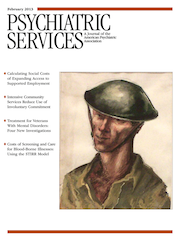Dosed: The Medication Generation Grows Up
Medicating children has long been a topic fraught with controversy in psychiatry. Do we understand the nature of mental illness among children well enough to make informed decisions about prescribing? Are we “drugging” children as a method of behavioral control, or are we undermedicating kids who need help and depriving them of a shot at happiness and a sense of normality?
In a refreshing departure from the argumentative tone of many recent books, Kaitlin Bell Barnett, a freelance writer who herself began taking antidepressants at age 17, points out that “Far too rarely do we consult young people themselves. How do they feel about taking medications? How do they think it has shaped their attitudes, their sense of themselves, their academic and career paths, their lives?” Relying on interviews with informants who tell poignant stories of their own experiences of having been on medication from an early age, Barnett argues that children are more actively involved in the “daily work of being medicated” than adults often assume. Some of these children are grateful for medications, some are embarrassed, and others vacillate between different attitudes as they transition from elementary school to college. Rarely has a book so thoroughly covered the territory of what it is like, from the inside out, to be a medicated child.
Barnett follows the lives of several kids from different social circumstances. For example, we meet 12-year-old Elizabeth, who is from an affluent suburb of Washington, D.C. Her father is an alcoholic attorney, her parents’ marriage is in the throes of imminent separation, and Elizabeth is showing signs of anxiety both at home and in school. She goes to family therapy, but she, along with several of the other children profiled in Dosed, dislikes therapy’s “self reflection on demand.” Elizabeth feels that her every move is being scrutinized. Not responding to these sessions, Elizabeth eventually takes an antidepressant and in summer camp falls in with a group of kids who romanticize depression. Her descriptions of this period, including her experiences with cutting, are enlightening and help to remind us how much children think about the diagnoses and the treatments that mental health professionals sometimes glibly administer.
On the other side of the social spectrum from Elizabeth, we meet five-year-old Paul from Fort Lauderdale, Florida. He is the product of a broken family and was raised in a succession of foster homes. Paul is a child whom many clinicians will recognize from their practices—the boy with an externalizing disorder who is variously diagnosed as having attention-deficit hyperactivity disorder, conduct disorder, and bipolar disorder. He is prescribed various medications, such as methylphenidate and carbamazepine, but never senses that the medications make him “feel any different,” and he attributes any improvement to outside factors. Illustrating the unrealistic notions that children have of medications, Barnett describes an incident in which Paul at age ten takes all of his medications at once—not as a suicide attempt, but rather because he hopes they will “fix him for good” and convince his latest foster parents to adopt him. Instead, he is sent to yet another foster family. Later, in his early teens, Paul ends up in a residential therapeutic setting and is given quetiapine. While he had prided himself on being a physical and intimidating figure, he recalls that quetiapine caused him such lethargy that his life resembled the slow-motion scenes in the movie The Matrix, which had just been released. He secretly cheeked his pills and was released from the facility within six months, not having taken the medications that his caregivers assumed were the cause of his “improvement.”
But this book is far from being an antimedication diatribe. For many of the young people described in Dosed, including the author, medications have nearly miraculous effects on their symptoms, although such responses do not last forever. As an example, at age ten Alex finds that he is abruptly beset by the thought, “What if I’m not my mom’s son after all? What if I’m adopted?” The thought becomes lodged in his brain, and a psychiatrist diagnoses obsessive-compulsive disorder (OCD), treating Alex successfully with fluvoxamine, which he then discontinues several years later without relapse. But after his high school graduation, Alex begins having spells of hopelessness and self-loathing that perplex him, because he does not connect them with his earlier symptoms of OCD. After Alex has several months of worsening symptoms, his mother reveals to him that he had originally been diagnosed as having depression along with OCD and that perhaps his symptoms are a sign that he needs to resume medication. The author uses this story to exhort clinicians to educate children better about their conditions—even when they are quite young—so that they can understand what is happening if a relapse occurs.
There are many other treatment narratives in this very readable book. Children are, by definition, young and naïve, and mental health professionals may be tempted to assume that they are unable to have much insight into the meaning of diagnoses and treatment decisions. Reading Dosed will lead one to reevaluate these assumptions, much to the benefit of the patient.



